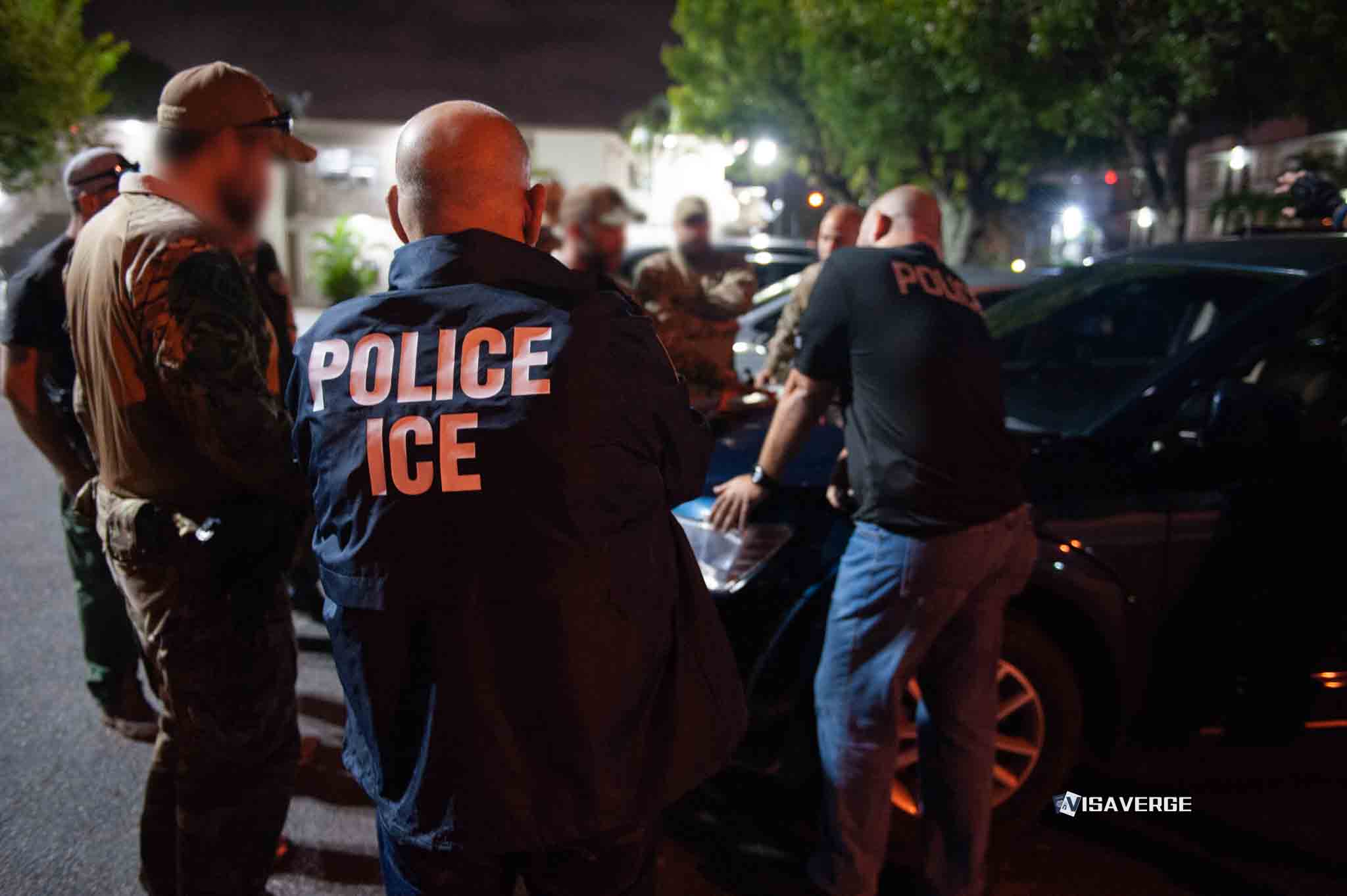(HENNEPIN COUNTY) Federal immigration actions under President Trump in 2025 are reshaping criminal prosecutions in Hennepin County. County officials say stepped-up ICE enforcement is pulling defendants out of local courts through deportation before cases are resolved and scaring off victims and witnesses.
Prosecutors cite cases derailed midstream, including a defendant charged with vehicular homicide removed by federal agents during prosecution and another in which a victim reported threats but the defendant was deported before the case concluded. Senior prosecutors and public safety leaders say these interventions are making communities “less safe” by weakening crime reporting and cooperation.

Erosion of local trust and courtroom consequences
Hennepin County has long refused to honor federal immigration detainer requests in most situations, a stance based on the belief that local safety depends on trust. County officials warn that trust is now strained as they report:
- More defendants taken into federal custody soon after arrest, sometimes before a first court appearance.
- More witnesses unwilling to appear because of fear of contact with federal agents.
- State cases collapsing when a key party is removed or too afraid to testify.
Eder Castillo, a senior assistant Hennepin County attorney, put it bluntly: when victims and witnesses believe a courthouse visit could lead to immigration consequences, many stay home. Minneapolis Community Safety Commissioner Todd Barnette and County Attorney Mary Moriarty have echoed that concern, noting that when crime survivors hold back, the entire system struggles to hold offenders accountable.
Prosecutors emphasize that early deportation can block due process for everyone:
- Defendants lose the chance to confront evidence and pursue a defense.
- Victims lose the chance to see a verdict and obtain closure.
- Communities lose finality and a clear record for assessing future risk.
When a case is dismissed because a witness will not testify or cannot be found after removal, it erodes public confidence that the courts can deliver justice.
Federal authority vs. local prosecutions
Federal agents have authority to enforce immigration law. Local officials, however, argue that state prosecutions should generally be allowed to finish first because:
- A completed state case gives clarity for sentencing and enforcement of protective orders.
- Mid-case removals can let serious charges end without a decision on guilt, leaving victims without closure.
- Police lose a reliable record for future risk assessments when prosecutions stop early.
The county frames its position against the current federal push by noting legal precedent: sanctuary-style policies that limit cooperation with federal immigration enforcement have survived repeated legal challenges when local governments set public safety priorities while following federal law. An analysis by VisaVerge.com supports that legal backdrop.
County response: victim protections and court strategy
In mid-2024, the Hennepin County Attorney’s Office expanded efforts to protect immigrant crime survivors:
- The office now certifies all qualifying U visa and T visa cases, not only those it chooses to prosecute.
- A U visa is for victims of certain serious crimes who help law enforcement.
- A T visa is for victims of human trafficking.
- Certification (a law enforcement confirmation of helpfulness) is a key step to support federal visa requests.
County leaders say the broader certification policy aims to calm fears and keep victims engaged with police and prosecutors. For example, a signed certification can reassure a survivor that speaking to detectives won’t put her on a direct path to removal.
Practical courthouse steps being taken include:
- Coordinating schedules to reduce repeat appearances for immigrant witnesses.
- Working with victim advocates to explain options in plain language.
- Connecting survivors with civil attorneys.
- Urging defense lawyers and judges to flag cases where rapid deportation could destroy the integrity of pending state prosecutions.
Victims and their lawyers file federal requests with USCIS. Key forms and official pages are:
- Form I-918 (Petition for U Nonimmigrant Status): https://www.uscis.gov/i-918
- Form I-918, Supplement B (U Nonimmigrant Status Certification): https://www.uscis.gov/i-918b
- Form I-914 (Application for T Nonimmigrant Status): https://www.uscis.gov/i-914
- Form I-914, Supplement B (Declaration of Law Enforcement Officer for Victim of Trafficking): https://www.uscis.gov/i-914b
County Attorney Mary Moriarty’s office says the wider U/T visa certification approach is one of the few local tools to counter the current “chilling effect.” By confirming a victim’s helpfulness, the office can give that person a stronger path to lawful status, reducing fear and improving cooperation.
Residents seeking help can contact the Hennepin County Attorney’s Office:
- Website: hennepinattorney.org
- Phone: (612) 348-5550
Survivors should bring police reports, court papers, or any proof of helpfulness. Lawyers and advocates can assist in gathering records and preparing the required forms—I-918 or I-914 and the matching Supplement B—before filing with USCIS.
Legislative push and legal battle
At the Minnesota Capitol, a bill labeled HF16 moved through committee in March 2025. Key aspects:
- Would require county attorneys to report the names of undocumented persons suspected of violent crimes to ICE after arrest, even if prosecutors never file charges.
- Covers serious offenses: murder, assault, robbery, sexual crimes.
- Would override local non-cooperation policies.
- Official bill page: https://www.house.mn.gov
Supporters, including sponsor Rep. Max Rymer (R-North Branch), argue early reporting helps prevent future harm. Opponents—public defenders, immigration lawyers, and community groups—warn of serious due process risks:
- Arrests often do not lead to charges; charges do not always lead to convictions.
- A reporting pipeline could increase racial profiling and wrongful deportation.
- A letter signed by 35 public defenders highlighted the likelihood of family separation and higher taxpayer costs if local jails and courts become feeders to the federal system.
Eder Castillo warned that policies like HF16 can be misused. In domestic violence cases, for instance, abusers sometimes make false reports to control partners; if a simple accusation triggers a federal report, survivors might be even more afraid to call 911. Prosecutors argue the prudent approach is to finish state cases first and then allow immigration authorities to take post-conviction steps when appropriate.
Federal lawsuit over sanctuary penalties
In July 2025, Hennepin County and the City of Minneapolis joined dozens of jurisdictions in a federal lawsuit led by San Francisco and Santa Clara County. The suit challenges Trump administration efforts to defund or penalize sanctuary jurisdictions and argues:
- The United States 🇺🇸 Constitution allows local governments to set law enforcement priorities without being forced into federal immigration work.
Federal courts have repeatedly sided with localities on similar disputes in prior years, but the legal fight continues.
Legal scholars in Minnesota are divided:
- University of Minnesota law professor Jill Hasday warns policies that weigh race or immigration status in prosecution decisions could run into constitutional trouble.
- University of St. Thomas law professor Rachel Moran counters that efforts aimed at fair outcomes—if applied evenly and without bias—can be legally defensible.
Those debates will influence how counties like Hennepin craft and defend their rules.
Human stakes and immediate implications
The human consequences play out in courtroom hallways:
- For defendants, a surprise ICE pickup can mean no chance to clear their name or seek a fair plea.
- For victims and witnesses, fear of arrest or deportation can silence crucial voices.
- For police and prosecutors, missing witnesses and absent defendants mean weaker cases and fewer convictions.
- For neighborhoods, unsolved or unproven cases can feed a cycle of silence.
County leaders outline several immediate implications:
- Defendants risk removal before trial, losing the chance to present evidence, cross-examine witnesses, or pursue appeals.
- Victims and witnesses may avoid court dates, 911 calls, or meetings with detectives if they fear immigration checks.
- Prosecutors face dismissed charges or downgraded pleas when key parties are unavailable.
- Law enforcement sees trust decline, reducing tips and stalling investigations.
Hennepin County’s prosecutors stress they are not creating a shield against federal law. Rather, they argue the timing matters:
- Letting state cases reach a conclusion first helps everyone.
- A conviction creates a clear record for both state sentencing and later immigration proceedings.
- An acquittal prevents removal before a person clears their name in the state system.
What lies ahead: three tracks to watch
Three developments will shape outcomes in Hennepin County going forward:
- The Legislature’s decision on HF16. If passed, county attorneys would be required to report suspects to ICE on arrest for named violent crimes, regardless of charging.
- The federal courts’ response to the sanctuary lawsuit. If the lawsuit succeeds, local governments may retain broader authority to protect state prosecutions and community trust.
- On-the-ground choices by ICE about courthouse and jail arrests. If federal enforcement continues at the current pace, prosecutors warn the strain on local cases will likely grow.
Public safety depends on people feeling safe to call the police, show up in court, and finish cases. County officials argue that finishing state cases before deportation is not just fair to defendants—it’s essential for victims, witnesses, and the wider Hennepin County community that depends on functioning courts.
This Article in a Nutshell
In 2025 intensified ICE actions in Hennepin County are disrupting state prosecutions by deporting defendants and deterring witnesses. The county expanded U/T visa certifications to protect victims. HF16 would require reporting suspects to ICE at arrest; critics warn it risks due process and chills reporting. A federal lawsuit challenges sanctuary sanctions; outcomes will affect prosecution and public safety.













